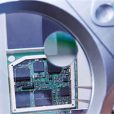The team at Echo IQ (ASX: EIQ), who have been excelling AI medical tech, is happy to say that their tech can finally detect and diagnose the early stages of severe aortic stenosis (heart disease) following positive results from the clinical study conducted with Beth Israel Deaconess Medical Center (BIDMC), the world-renowned teaching hospital affiliated with Harvard Medical School.
The retrospective analysis was performed on 31,000 patients’ medical files across North America who have been diagnosed with severe aortic stenosis and received treatment between 2012-2016. It aimed not only to assess if there were any cases where someone might have died sooner than expected but also to understand how reliable Echo’s tech can be when identifying people who are seeking a diagnosis.
The results of the study shows evidence that the Company’s AI tech, named ‘EchoSolv’, can accurately detect the heart conditions known as ‘severe aortic stenosis’ as well as any individuals at an increased risk of death from the disease.
“EchoSolvTM worked extremely well to identify individuals with severe aortic stenosis, despite needing minimal data inputs, suggesting its potential utility as a triage tool to identify patients at-risk and not-at-risk. Using EchoSolv in clinical practice could make a huge difference in our ability to identify those individuals who need timely evaluation,” said Dr Jordan B. Storm, Principal Investigator and Director of BIDMC Echocardiography Laboratory.
After excluding patients previously known to have been treated with an aortic valve replacement and compared to routine clinical interpretation, EchoSolv rapidly and clearly identified a cluster of patients meeting guideline definitions for the disease. This group accounted for a large (~5%) of patients undergoing echocardiography at BIDMC.
The study revealed that this cohort, meeting current echocardiographic guidelines for severe aortic stenosis, received a valve replacement in fewer than 50% of cases, consistent with known rates of treatment.
Overall, the study showed that treatment for those with an increased risk of death from aortic stenosis was received in only a quarter of cases identified by EchoSolv.
“This significant study demonstrates a number of important findings that support the value of EchoSolv in clinical practice. Firstly, the AI-backed technology identified a clear cohort of patients with a substantially increased risk of death. This has the capability to assist clinicians, physicians and heart care teams in delivering specialist care where it is needed most,” said Prof. Geoff Strange, Echo IQ Chief Research & Strategy Officer.
The study’s success is a boon not just to Echo IQ, but also to the many hospitals and groups who have been waiting for these results. With the technology now proven to be effective, there will be a rapid commercial deployment of EchoSolv. This will increase treatment options for patients as well as further treatment opportunities for healthcare professionals.
- UNITH delivers eSocial Worker for public health services across 14 countries - December 5, 2023
- Novatti cashing out of Reckon investment, clears debt to simplify payments business - November 17, 2023
- Novatti seizes opportunity in Australia’s cashless transition as revenues rise while expenses drop - October 30, 2023













Leave a Comment
You must be logged in to post a comment.